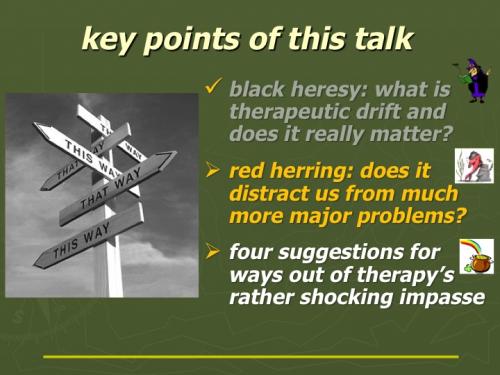Therapists, Mentors & Coaches
“ Any unexplained phenomenon passes through three stages before the reality of it is accepted. During the first stage it is considered laughable. During the second stage, it is adamantly opposed. Finally, during the third stage, it is accepted as self-evident. ” - Arthur Schopenhauer
Therapists, mentors & coaches: an introduction
key points:
1.) what makes some psychotherapists, counsellors, mentors & coaches more helpful than others?
2.) links are provided to five ways of increasing therapist helpfulness - feedback, therapeutic alliance, expectancy & hope, deliberate practice & therapist resilience.
"The secret of patient care is caring for the patient." William Osler


